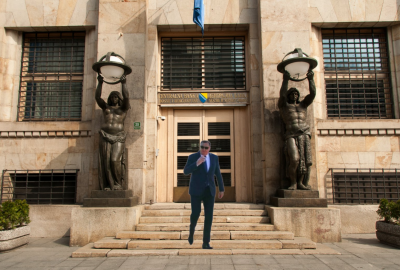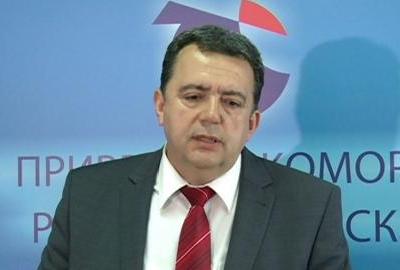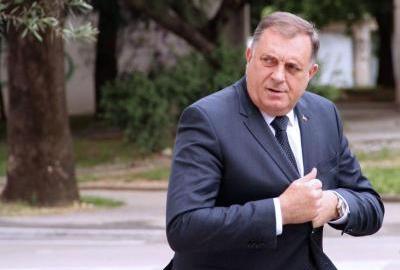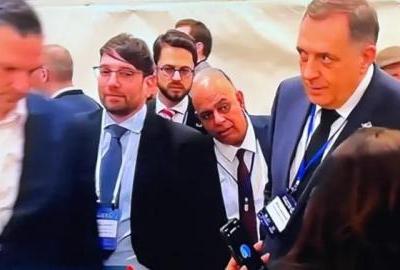Žurnal in English
THE STRUGGLES OF PUTIN'S PET: Milorad Dodik Wants to Play for Russia with Western Money
Vladimir Putin, the "people's candidate", once again the president of the Russian Federation He previously eliminated serious opponents in various ways. Aleksandar Vučić and Milorad Dodik are happy with the election results, knowing that with Putin's victory they can continue to manipulate their voter base. And precisely at the moment when that base realizes that their faithful following does not contribute to the quality of life, on the contrary, it will be their political end.
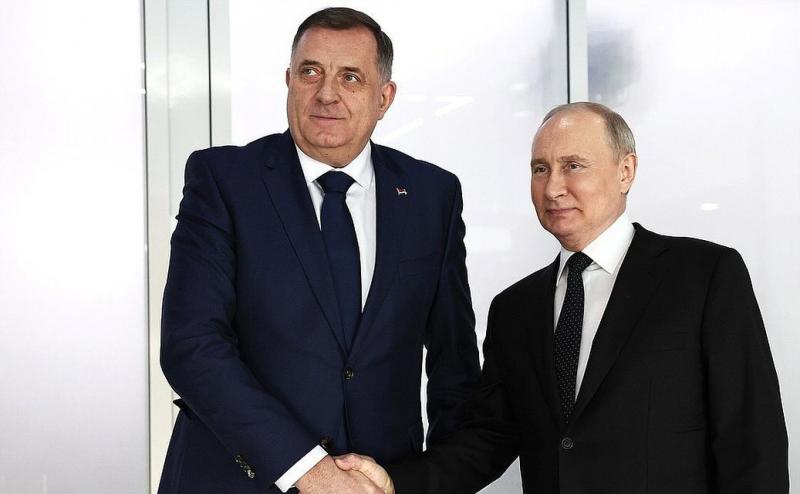
It's not easy being Milorad Dodik lately. He has to go shake hands with Russian President Vladimir Putin, attach the reciprocal medal handed to him, and then quickly head to Turkey. Publicly, he ingratiated himself with the President of this country, Recep Tayyip Erdogan, in order to squeeze out a few euros for the budget deficit he has brought upon the Bosnian entity, Republika Srpska. Dodik would accept American dollars as well, regardless of the barrage of insults he must endure from the Ambassador of this country in Bosnia and Herzegovina, Michael J. Murphy. But even the ambassador did not hold back.
"The residents of Republika Srpska are leaving Bosnia and Herzegovina in large numbers. Entire families are concluding that building a life in Republika Srpska is neither economically feasible nor politically secure... RS has engaged in opaque borrowing from domestic and foreign creditors. In short, Mr. Dodik is placing an unsustainable financial burden on future generations", Ambassador Murphy asserted at the end of last year.
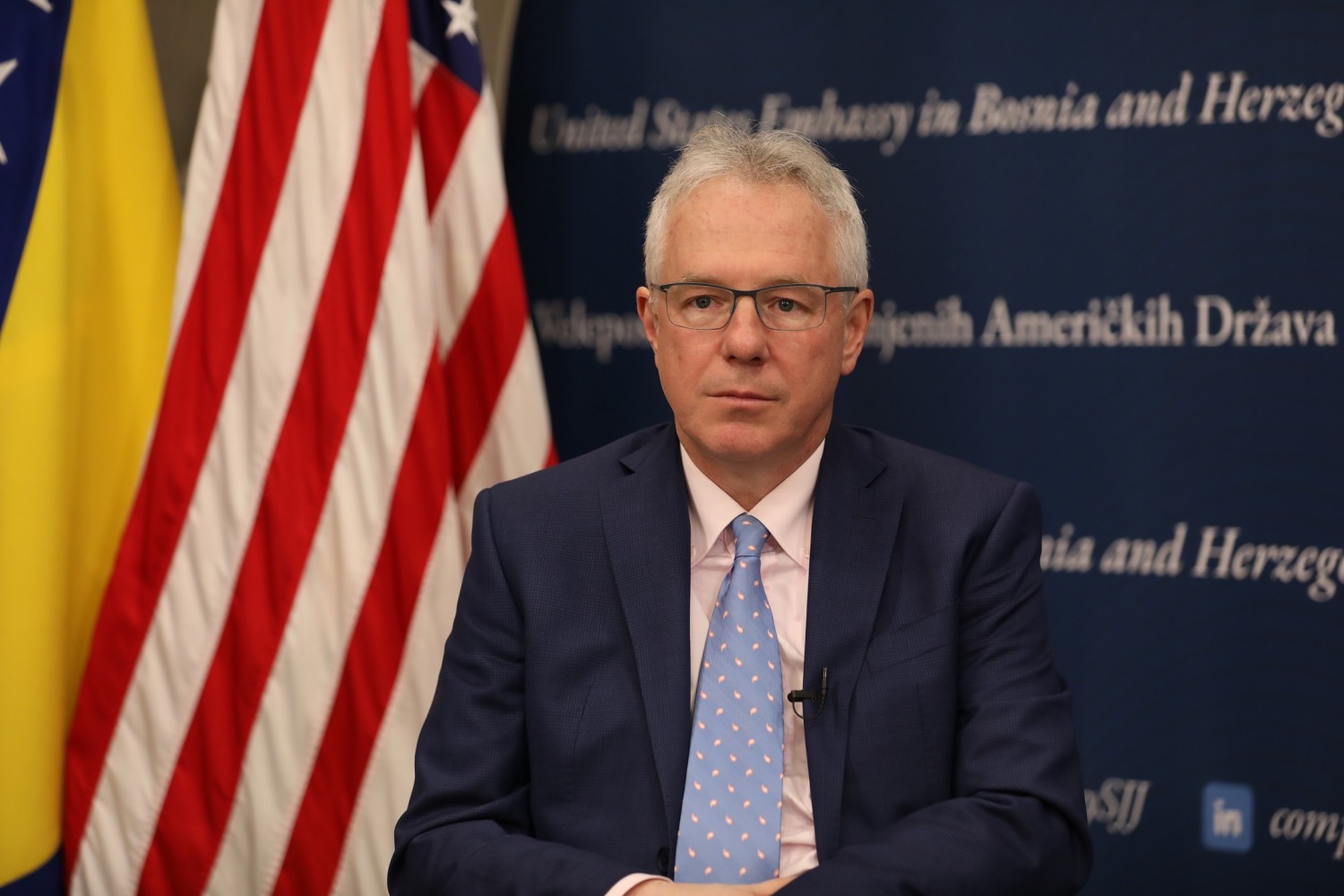
Dodik is trying on all fronts to scrape together the missing money to save the entity's budget. As Western countries led by Germany have halted numerous projects and banks are reluctant to lend in such a situation, he is turning to "straws of salvation" such as Hungarian Prime Minister Orban, and Turkish President Erdogan, seeking investment from Azerbaijan and even Saudi Arabia.
Clearly, Putin is not providing money. On February 21st of this year in the city of Kazan, after the fourth meeting with Dodik since the beginning of the Russian aggression in Ukraine, he expressed only gratitude for regular contacts and constructive relations.
"The representatives of the leadership of Republika Srpska regularly visit us and cooperate with us in various areas. I am sure that this visit of yours will also be beneficial and that we will manage to use the time to discuss bilateral relations in a whole range of areas", Putin said on that occasion.
Dodik had nothing new to say. He reiterated the authorities' refusal in Republika Srpska to join sanctions against Russia as well as resistance to Bosnia and Herzegovina's accession to NATO, inevitably denying the legitimacy of the High Representative in BiH, Christian Schmidt.
"Whatever happens, the Serbs will be on the side of the Russians. This drives the West crazy, that's why they think the Serbs should be punished. Russia may make mistakes, or do something wrong, but the Serbs will be on its side. He (Putin) always supports us because it is friendship, because these are good relations, an understanding among people, between leaders, states, and peoples. There is pressure coming from the West, trying to turn everyone against Russia. We don't do that", Dodik later told the TASS agency.
ČOVIĆ'S SUPPORT FOR RUSSIA
Dodik's visit resulted in the expected negative reactions from the European Union and the United States, followed by Dodik's opponents in Republika Srpska and some political actors in Bosnia and Herzegovina.
"Bosnia and Herzegovina has committed to follow the security and foreign policy guidelines of the EU as a candidate country for European Union membership. This excludes cooperation with states under sanctions, including personal meetings with the heads of those states", stated the OHR.
"The issue of malign Russian influence must not be underestimated; we must be very cautious", said Denis Bećirović, a member of the Presidency of Bosnia and Herzegovina, after meeting with the Head of the EU Delegation to BiH, Johann Sattler, and ambassadors of EU member states in BiH at the beginning of March.
"Has anyone gone from BiH to Belarus and Russia? Bosniaks, Serbs, Croats, Bosnians, and Herzegovinians are moving towards EU democracy, which is why the EU needs to complete the integration process of Western Balkan countries, and a secure and stable BiH is a guarantee of security for the entire region", Bećirović concluded.
The Embassy of the Russian Federation in BiH responded to criticism from Western countries.
"We want to ask our European colleagues: where did the respect for the sovereignty of Bosnia and Herzegovina, which Brussels so often emphasizes, disappear? It turns out that when Bosnian political actors act based on the interests of their voters and people, but contrary to the provisions of the so-called collective West, they are automatically declared 'agents of the Kremlin,' spreading 'malignant Russian influence.' We see in such an approach blatant hypocrisy, which testifies to the forgetting of infamous European values for the geopolitical aspirations of its elder partner – the USA", stated the Russian embassy.
 The masks have finally slippedThe role of Russia in a destructive offensive of Milorad Dodik
The masks have finally slippedThe role of Russia in a destructive offensive of Milorad Dodik
As expected, there are no negative comments about Dodik's visit to Russia from the HDZ BiH and its leader Dragan Čović, who is currently in the phase of supporting Dodik in Russia. Reasons can also be found in his acquisition of a kind of para-privatization of the Mostar Aluminum Factory, which is a citizen of Israel, Amir Gross Kabiri. As impossible as it may seem, Kabiri probably has better connections with Russia than Dodik. His Panama-registered company, "M.T. Abraham Group", as the owner of the "Aluminum Industry", continues to pump hundreds of millions of dollars into Russia, buying non-alloyed aluminium and similar aluminium waste.
Kabiri can argue in his defence that aluminium waste from Russia is of better quality than that from India (which, if it is indeed from this country, he imports in equal quantities into BiH) and that the purchase of non-alloyed aluminium from Russia is not on the sanctions list, and some EU countries still practice it. However, the fact is that many countries have stopped or significantly reduced those quantities. In contrast, while Kabiri waves Israeli flags around Mostar, he continues to bring profits to a state that Israel views as supporting their enemies.
PUTINIZATION OF THE REGION
Let's return to Dodik and his pro-Russian activities, which he is trying to carry out not only in Bosnia and Herzegovina but also in the region, all in cooperation with Serbian President Aleksandar Vučić. They are striving to create or maintain strongholds for Russian influence, regardless of the benefits, apart from maintaining their personal political egos, which are not mutual.
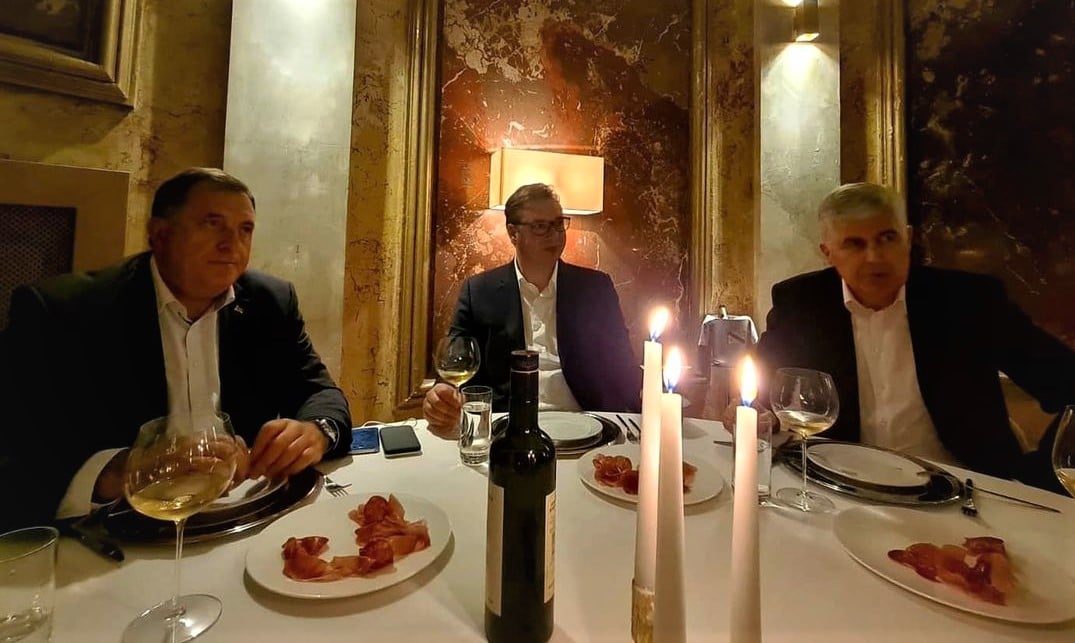
They serve Putin to maintain tensions in the region, and he serves them to cover up their failures. Let's recall how after Russia, Dodik also went to Montenegro to allegedly deliver a proposal for an Agreement on Special Relations between RS and Montenegro to the President of the Montenegrin Parliament, Andrija Mandić. We can only speculate about the true content of the conversation, which is likely the continuation of destabilizing the region according to Putin's instructions.
"One of Russia's strategic plans that, if we were smart, we should have noticed in the early nineties, is the tactic of getting these small nations to quarrel, to be in mutual confrontation, and through that confrontation, Russia gains control over individual nations. This seems astonishing to us here; we wonder if it's really like that... However, in the Caucasus, Russia has been ruling like that for 300 years", says Čedomir Stojković, a lawyer from Belgrade, one of the harshest critics of Vučić's regime and opponent of Russian influence.
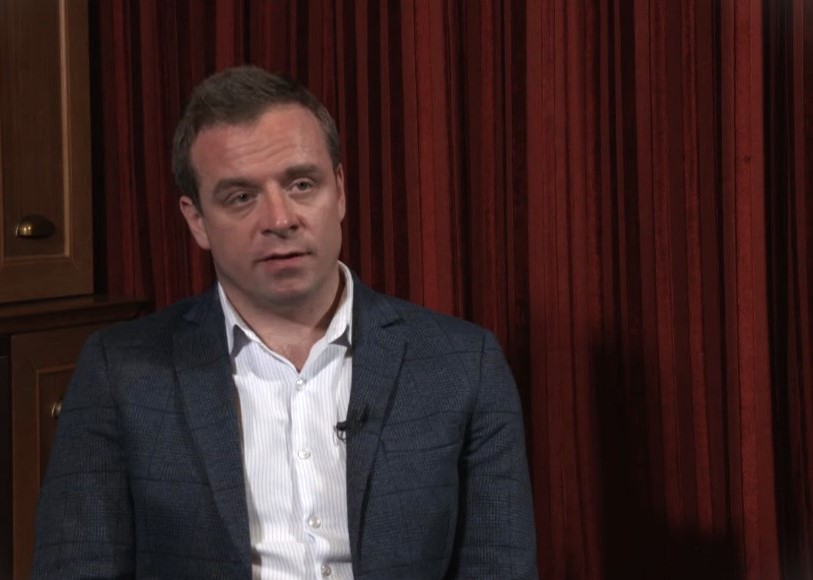
Dodik, on the other hand, wants to be Putin's shadow over the Balkans at all costs, at least as much as Vučić allows him.
"In Serbia, the president does not listen to any institution, experts... nobody, because it's 'how I say it.' The same goes for Dodik, and now similar politicians are emerging in Montenegro. They all impose 'Putinism' as a legitimate political form of governing the Western Balkans", says Duško Radosavljević, a political scientist from Serbia for AJB.
Looking at Bosnia and Herzegovina, Dodik, through cronies from his party in the structures of state power, continues to burden political and economic prosperity with constant blockades, justified by procedural reasons. What represents his last obstacle are several state institutions, the Court and Prosecutor's Office of BiH, namely the High Judicial and Prosecutorial Council, then the Constitutional Court and of course the Central Election Commission of BiH, as Žurnal wrote about some time ago.
"If Dodik achieves this goal, the current constitutional system, which is already burdened with possibilities of procedural blockades, poor financial management, and abuse of office, probably will never be reformed. This would be an ideal scenario for Russia. In that case, BiH still would not be able to conduct an independent foreign policy regarding NATO or regarding the Russian occupation of parts of Ukraine. On the domestic front, this would allow Dodik or political like-minded individuals to eliminate several remaining institutions that have retained a certain degree of independence from ruling political parties", warns Majda Ruge in her article, a former advisor in the Delegation of the European Commission to BiH and the OSCE Mission to BiH.
NUMEROUS CHANNELS OF DESTABILIZATION
Nothing is coincidental, including the recent adoption of the Law on the Production of Weapons and Military Equipment in Republika Srpska by the Government and the National Assembly, yet another attempt to assert entity authority over the state. The law is justified by activities of strategic interest. The effects revealing the true intention quickly followed. As reported by "Bloomberg Adria", new companies are being registered with founders from Serbia.
The defence industry is another link in the chain through which Dodik and Vučić forge "special ties", such as in the fields of energy facilities, airports, highways, and gas pipelines, where Serbia appears as a (co)owner of resources on the territory of Bosnia and Herzegovina. Recall that Dodik long ago sold the entity's telecom operator to the Serbian state-owned company, while he delivered the oil sector to Russia, the oil refinery in Brod, and the oil in Modriča.
Perhaps the most significant link in pro-Russian activities in Serbia, Republika Srpska, and Montenegro is the Serbian Orthodox Church, which follows pro-Russian policies in everything.
"Its role is to sow discord in the Balkans as needed, and it largely does so under the command of the Russian Orthodox Church, which is one of the main exponents of the Russian world. Thus, the Serbian Orthodox Church is one of the main tools of the 'Serbian world' here in the Balkans. We have seen enough of that, and for those of us who are older, it comes as no surprise to us given the policy played by the SPC in preparing for wars and during the wars themselves, and then afterwards in justifying war crimes. It is not actually a religious organization; it is a political organization par excellence and a very dangerous and powerful political organization", said Dinko Gruhonjić, editor of the Autonomija portal from Novi Sad.
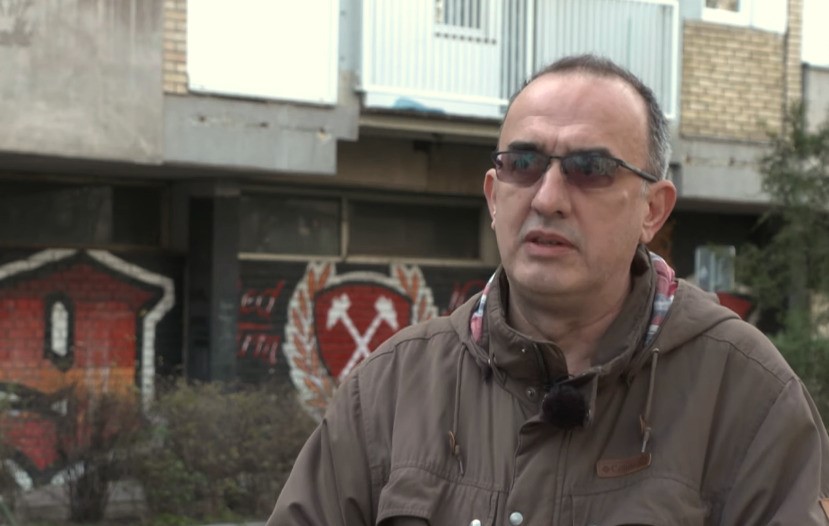
"When you see the scenery of those processions, I don't know of any sovereign country where there are images of a foreign leader at the forefront. There are no images of the sovereign of that country; there are always two images of Putin; this was particularly the case in Montenegro", sociologist Sead Pašić reminds us.
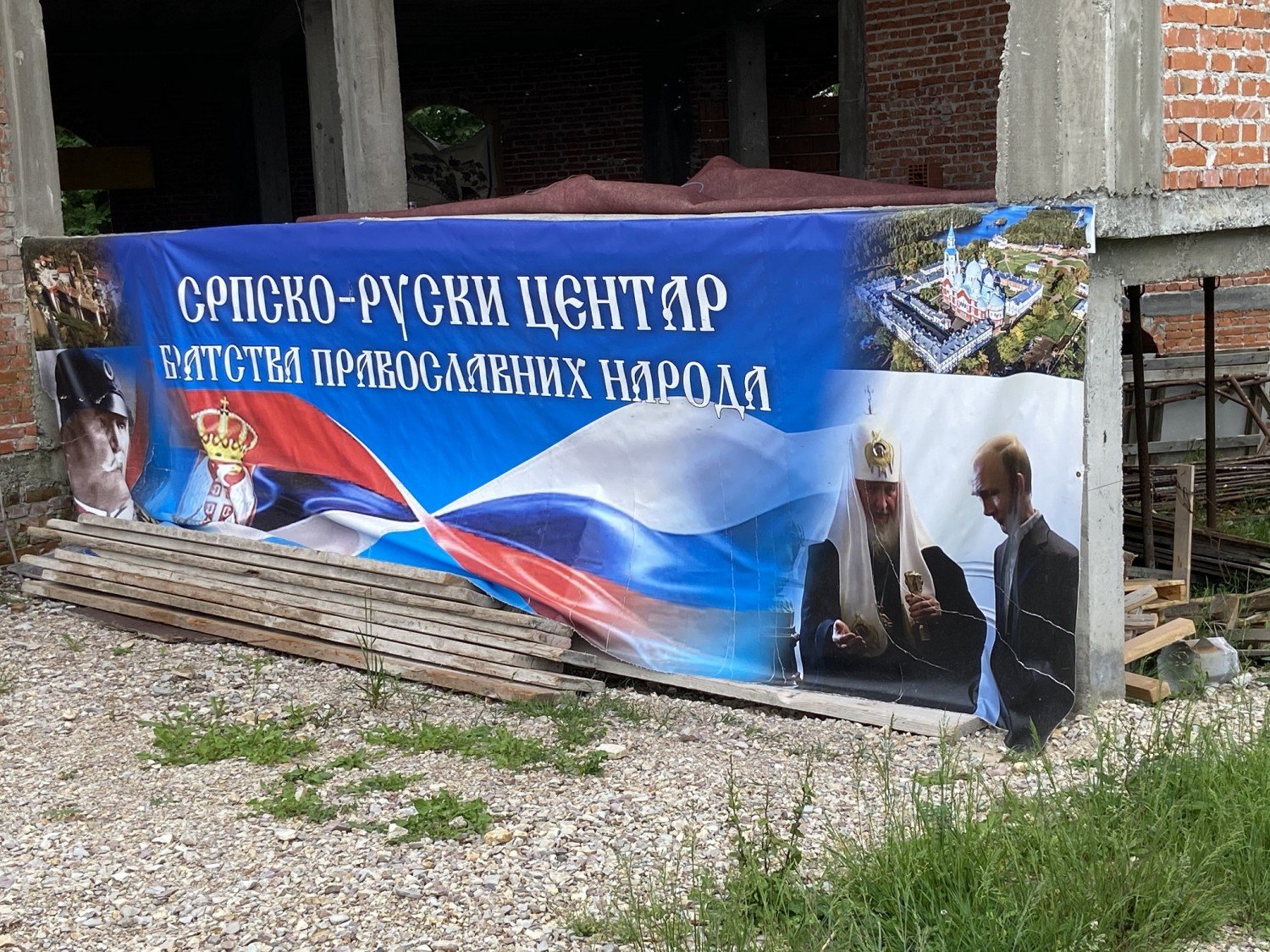
Of course, an essential item for complete propaganda, alongside various humanitarian organizations with a Russian prefix, education initiatives promoting the learning of the Russian language in schools and offering scholarships for education in Russia, and various cultural events primarily glorifying all things Russian, are the media.
As early as 2018, during his visit to Russia, Milorad Dodik publicly called on Russian media to strengthen their influence in Bosnia and Herzegovina.
"As some others have done, a Russian media house should be opened, which would have electronic and TV programs in local languages and cover the region, as N1, 'Al Jazeera,' and others have been doing for a long time, and no one considers it a problem anymore. But if Russia were to do that, it would trigger a barrage of attacks on us and the Russians, even though they are doing nothing", asserted Dodik.
There were announcements that Gazeta would open its branch in Bosnia and Herzegovina, but the successful realization did not happen. It was only five years later that the issue of Russian media in Bosnia and Herzegovina was brought up again. The Russian state media RT (formerly Russia Today) announced last September the launch of a TV channel in Bosnia and Herzegovina. Personally, Putin, in response to a question from reporters from the Banja Luka-based ATV at the annual press conference, said he would check with his colleagues what they could do. The next day, Margarita Simonyan, RT's editor-in-chief, announced the broadcasting of their channel in Bosnia and Herzegovina in the Serbian language. So far, there is no indication of the initiation of this process by the competent authorities in Bosnia and Herzegovina. It should be noted that European sanctions imposed on Russia, which Bosnia and Herzegovina is expected to follow, include a ban on the broadcast of Russian television channels, RT, and Sputnik.
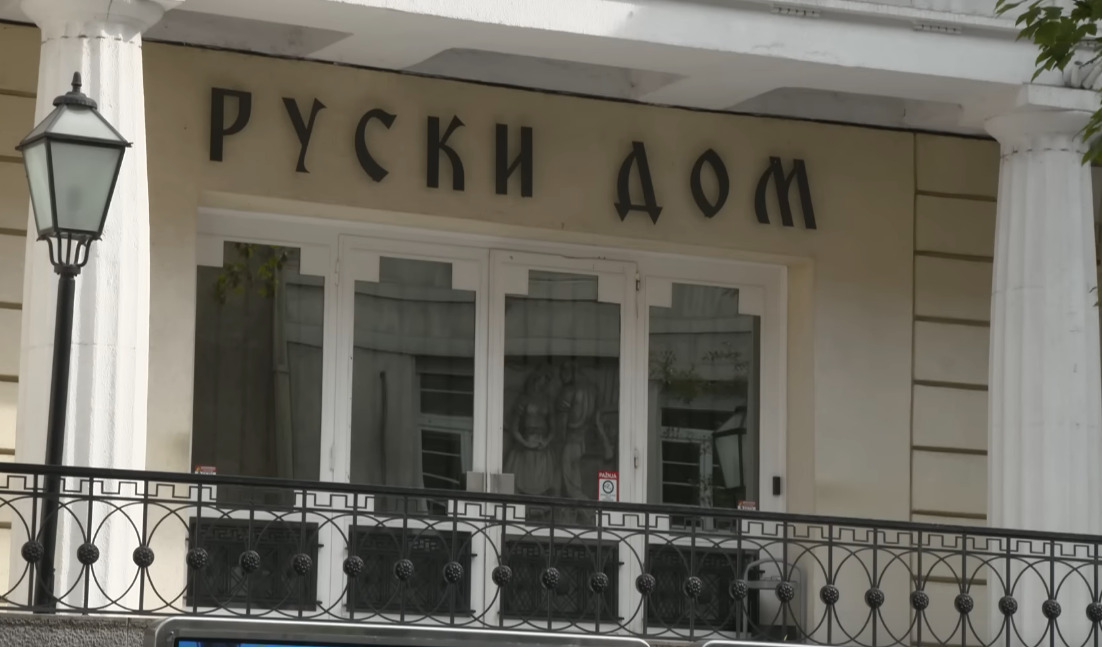
In addition to these two media outlets, Russian cultural organizations and propaganda media such as the Foundation "Russkij mir" and "Rossotrudnichestvo" are listed in the European Parliament Resolution on countering propaganda against the EU, whose representations are labelled as spy centres in numerous countries. In March 2021, Rossotrudnichestvo was renamed "Russian House", of which there are currently about 80 in various countries. One such institution was opened in Belgrade. Last November, in that facility, awards were presented on behalf of this organization to ministers in the Government of Republika Srpska, Petar Đokić, Željka Stojčić, and Srđan Perišić, an advisor to Milorad Dodik.
Vladimir Putin, the "people's candidate", once again the president of the Russian Federation He previously eliminated serious opponents in various ways. Aleksandar Vučić and Milorad Dodik are happy with the election results, knowing that with Putin's victory they can continue to manipulate their voter base. And precisely at the moment when that base realizes that their faithful following does not contribute to the quality of life, on the contrary, it will be their political end.
(zurnal.info)








